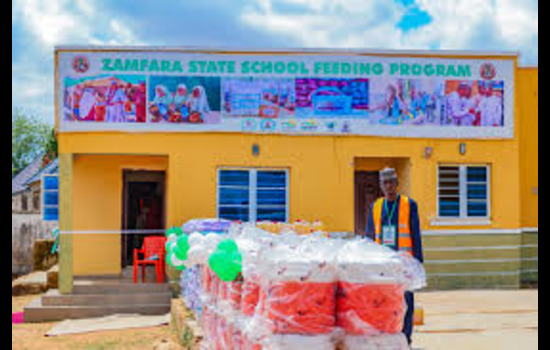Lawal launches pilot school feeding program to shrink out-of-school children population, impact enrollment, in Zamfara
Zamfara State Governor, Dauda Lawal has launched the pilot school feeding program to combat child hunger, boost school enrollment and reduce the number of out-of-school children in the state.
Speaking on the development, Governor Lawal said the program was not only about feeding children, but also restoring dignity, improving access to education, and fighting poverty.
The initiative is under the coordination of the Senior Special Assistant to the President on School Feeding (OSSAP-SF), Dr. Yetunde Adeniji, whose office continues to drive inclusive national strategies to uplift Nigeria’s most vulnerable children.
“We are proud to be working with visionary leaders like Dr. Yetunde Adeniji to deliver on our shared promise,” Lawal said.
The program is supported by key development partners including the World Bank (AGILE), UNICEF, International Center for Economic Development (ICED) and FINPACT Development Foundation
For her part, Mrs. Adeniji, who identified prevalence of out-of-school children in 14 local government areas of the state, assured that through sustainable pilot interventions, the collaboration will mark a turning point in Zamfara’s education sector.
“Together, we are ensuring that no child is left behind, nourishing minds and bodies one plate at a time. This is what impact looks like. This is Renewed Hope in Action,” she stressed.
Recall the agency in charge of the school feeding program of the state was established by the first executive Governor of the State, Senator Ahmed Sani Yarima in 2000 to encourage pupils to attend public schools regularly through free meals.
The program was suspended by the present administration on grounds of corruption and mismanagement of funds facilitated by the government.
The suspension of the free feeding program in public schools according to local observers had multiple effects not just on heightening hunger among Zamfara children but also swelling the ranks of out- of-school children as well as negatively affecting the suppliers of the food items to school as it renders them jobless.




